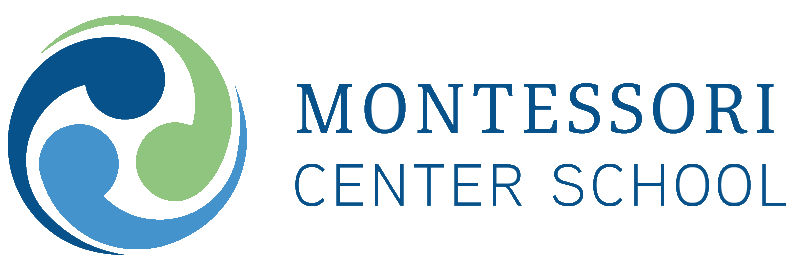Montessori Kindergarten vs Traditional Kindergarten

The Montessori Primary program is a foundational program that combines preschoolers and kindergartners in a multi-age space — but staying all three years is often underestimated! Learn why the kindergarten year is so vital for a Montessori child, and how it differs from conventional kindergarten.
Kindergarten is a milestone year. Parents anticipate this big leap when their children approach their second preschool year and must consider whether to send them off on a big yellow school bus or a neighborhood bike ride to school. In this conventional model, kindergarten is often situated in the same school as elementary, where they would be grouped by age and change classrooms annually.
In this default model, it’s not surprising that kindergarten feels like a crossroad — it sets the trajectory for their future schooling. It might even be nostalgic to revisit that yellow school bus if it’s how we experienced school. This familiarity leads many Montessori preschool parents to ask, “Should I pull my child out of Montessori for conventional kindergarten?”
It’s important to understand how each year of Primary is connected, and why withdrawing mid-cycle doesn’t come with programmatic advantages. The third year of Primary completes the academic and social experiences that 5-and 6-year-olds require for optimal development. We’ll explore more below.
What is Montessori Kindergarten?
Montessori Kindergarten is the final year of the Primary program— a three-year learning community for ages 3-6. Each year is purposeful and is often compared to building a house. In their first year, the three-year-old lays a foundation. At age four, they start to build the walls. By age five, the child is ready to secure the roof. The child keeps progressing by deepening their knowledge with new layers; it is not the same experience year after year.
Instead of starting over in a new classroom, the Montessori Kindergartner experiences continuity through a “capstone year,” where they gain protected time to master all that they’ve learned and to take that knowledge to new heights. Academically, they have access to much more advanced materials — many of which compare to third-grade level work.
Socially, they step into leadership roles made possible by the mixed-age environment. Through mentoring the younger students, they hone life skills like how to communicate, problem-solve, plan and execute — all while getting the repetition with lessons that are key to deeper understanding.
Traditional Kindergarten
- Same-age classroom: Children are grouped by age and move up annually
- Curriculum is standardized: Subjects are taught within a rigid curriculum
- Teacher-led: A teacher directs what children learn and when, usually in shorter increments of time where subjects change quickly.
- Workbooks and worksheets introduced: Hands-on work may be incorporated, but textbooks and worksheets are more common in this model.
- Exercises and drills begin for test performance: It’s not uncommon for rote memorization drills to begin this early, and for your kindergartner to already bring homework home
Montessori Kindergarten
- Mixed-age classroom: Children are grouped by stage of development and move up every three years.
- Curriculum is flexible: Subjects are structured and sequential, with greater flexibility to individualize lessons per each child’s own timeline
- Child-led: Students explore subjects at their own lead during a three-hour work period that enables uninterrupted focus. This protects their developing skill of concentration.
- Hands-on, sensory materials: Children under the age of six get heightened feedback from their senses as part of the time-sensitive “absorbent mind.” Classroom materials are strictly designed to satisfy this mode of learning.
- Real-time assessment: Instead of commanding the room for group lessons — and assigning homework to see if each student grasped it later — a Montessori teacher circulates the classroom to assess and support each child one-on-one.
Why so Different?
Montessori education was scientifically designed around the stages of human development, and so each aspect answers an age-appropriate need. In traditional education, core features came from a need to systemize learning, and so the students must adapt to the teaching — rather than the teaching adapting to them.
For example, grouping children in mixed-age communities in Montessori is intentional, not operational like same-age groupings. Children between 3 and 6 do not learn as we do as adults. Their senses are heightened, and their brain is forming connections at an unprecedented rate. Different times of life bring different cognitive capabilities.
At age five, children are still learning through heightened absorption of their surroundings; they still benefit immensely from hands-on, concrete introductions to abstract concepts, and they are still wired to work individually so they can finish refining their sense of self. Montessori kindergarten mirrors these aspects of their development.
After age six, they will undergo significant shifts. They will become more imaginative, capable of more abstract thinking, socially motivated, and hungry for intellectual knowledge, but the Primary program does not seek to rush this transition; it meets them precisely where they are — empowering them to “secure that roof.”
Care to learn more? Contact us today to schedule a tour.
Text: Guidepost Montessori
Programs
Montessori Center School admits students of any race, color, religion, national and ethnic origin, gender identity, and sexual orientation to all rights, privileges, programs and activities general recorded or made available to students at the School. It does not discriminate on the basis of race, color, religion, national and ethnic origin, gender identity or sexual orientation in the administration of its educational programs, admission and tuition assistance policies, and athletic or other school-administered programs. Non-Profit Education Organization, License No. 426205239


